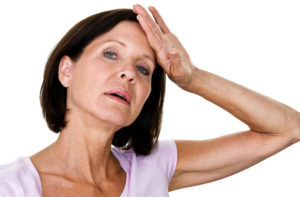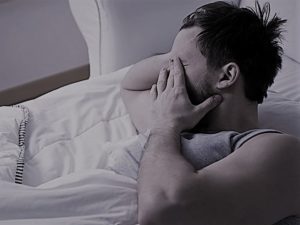Approaching the middle age makes us consciously aware of certain physical, mental, emotional as well as sexual changes that we would be experiencing, sooner or later. Actually these changes are absolutely normal and are known to happen more or less to every man and woman. Although the symptoms may be different or alike, yet these are evident with person to person. Most of these alterations are known to arise due to a complex series of hormonal changes, in fact a gradual drop in the production of certain hormones to be precise, whereas the others may be accorded to ageing or current circumstances in life.
What Happens When Women Age?
 When it comes to women, the collective name for these changes happening around is known as menopause, a condition which also marks the end of the reproductive cycle. Menopause is an extremely normal, indispensable, biological process and happens to every woman during her late 40s, or early 50s. During menopause, our functioning ovaries tend to decline and therefore, the production of oestrogen as well as progesterone gradually decreases.
When it comes to women, the collective name for these changes happening around is known as menopause, a condition which also marks the end of the reproductive cycle. Menopause is an extremely normal, indispensable, biological process and happens to every woman during her late 40s, or early 50s. During menopause, our functioning ovaries tend to decline and therefore, the production of oestrogen as well as progesterone gradually decreases.
Menopause – Cessation of the Menstrual Cycle
Typical menopause symptoms may include symptoms such as vaginal dryness, frequent mood swings along with may be a sudden increase in weight. Anxiety, stress, disrupted sleep cycles as well as a reduced sex drive are also accompanied by menopause. Hot flashes, however, remain the most common symptoms of those undergoing menopause. These may occur at any time of the day, or even during night. Not only this, among many women, the onset of menopause may also lead to apparent symptoms of what is known as osteoporosis. This is because the dropped amounts of oestrogen also affects the calcium levels in the body, thus making bones weak, affecting their density, and making aging women more prone to fractures and bone injuries. This stage of menopause may also affect the cholesterol levels among women, and increase the chances of cardiovascular problems.
Take Care
These symptoms of menopause begin to appear slightly in advance. Known as perimenopause, this is the transitional stage to menopause, during which the menstrual cycle begins to become irregular. This stage can last for 3-5 years. However, menopause is confirmed when a woman has not had her period for 12 months straight. Most of the women across the world manage to conveniently pass through these years without seeking any major medical attention. Nonetheless, in order to make up for any nutritional deficiencies as well as prevent the weight gain problems often associated with cessation of periods, it is recommended for all women undergoing menopause or nearing their menopause to ensure that they continue to take a balanced diet, and maintain an overall healthy lifestyle.
What Happens When Men Age?

These age-related problems are not restricted to women alone. Even men tend to suffer from their own set of problems as age begins to catch up. One of the most common problems faced by them is the enlargement of prostate gland. Prostate is basically a walnut shaped gland, forming a part of men’s reproductive system. The fluid it produces has a major role to play in ensuring a healthy fertility among men. As men age, their prostate gland tends to grow in size.
Prostatitis And BPH In Me
There comes a time when the prostate gland begins to grow abnormally large and press against the urethra. As a result, the wall of the urinary bladder becomes thicker, making the bladder weaker and unable to empty completely. Benign Prostatic Hyperplasia (BPH), a medical term for an enlarged prostate gland, results in urine retention, which leads to its own set of serious problems among men, including bladder damage, kidney damage, bladder stones, blood in the urine, etc. Those suffering from an enlarged prostate gland also end up hitting the washroom way more frequently during the night.
Take To Stress Relief And Nourishing Diet
It is said that, as they age, almost all men are at an equal risk of suffering from this particular problem. More likely are the ones with obesity, type 2 diabetes or heart related problems. However, the problem of BPH is especially common among those with a family history. Again, a combination of diet as well as lifestyle changes is recommended to those suffering from an enlarged prostate. Relieving stress, ensuring the bladder emptiness before returning from washroom, taking timely medication etc. may contribute in making this period less cumbersome.
Watch Video: Ayurveda Tips For Insomnia and Loss of Sleep
About the Author:
Dr Sonica Krishan is Author and Speaker in the areas of Healthy and Joyous Living through Ayurveda, Meditation, Yoga and other Contemplative practices. She is a leading Ayurveda Professional in India. She is also Health Writer, Columnist, Editor, Ayurveda Consultant and Holistic Healing Coach. Dr Sonica is open for National as well as International Collaborations with interested people / institutions in fields of Ayurveda, Meditation and Yoga.
Dr Sonica Krishan’s Books are available at Amazon
Vitamin D – Essential For Calcium Management?
Tagara – The Recommended Herb For Insomnia
